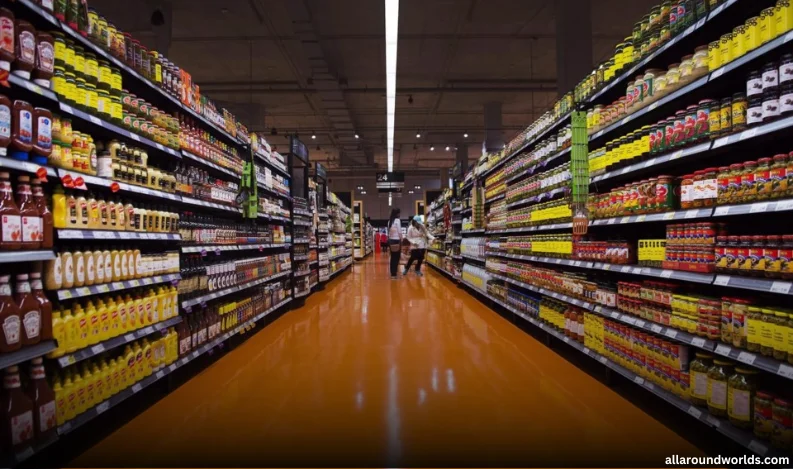
Canadian Small Businesses Rally Behind ‘Shop Canadian’ as U.S. Tariffs Bite
Ottawa — When the U.S. government imposed steep new duties on Canadian goods earlier this month, many of Canada’s small‑business owners didn’t see red tape—they saw red maple leaves. Rather than passively accepting higher costs, dozens of independent shops and cafés from coast to coast have seized on national pride to transform trade tensions into home‑grown marketing campaigns.
President Donald Trump’s administration introduced a 10 percent tariff on Canadian energy products and a 25 percent levy on most other imports from Canada and Mexico on March 4, 2025, citing the need to correct perceived trade imbalances and bring manufacturing back to American soil. A matching 25 percent duty on vehicles not assembled in the U.S. came into force in early April, with auto‑parts tariffs slated for May.
Canada answered in kind, unveiling counter‑tariffs of 25 percent on roughly C$30 billion worth of U.S. imports. But beyond government measures, the real front lines of this economic dispute are small‑business storefronts and neighborhood markets, where shopkeepers are deciding whether to swallow the extra costs themselves—or pass them on to consumers who are increasingly eager to spend their dollars at home.
‘Canadiano’ Replaces ‘Americano’
In Toronto’s Distillery District, Balzac’s Coffee Roasters has turned its signature Americano into the “Canadiano,” complete with a maple‑leaf graphic on café menus. “We wanted to give people a smile—and a subtle reminder to think about where our drinks come from,” says co‑founder Jonathan Taylor. The playful rebranding has sparked conversations among regulars and driven a 15 percent uptick in espresso sales since early April.
Not far away, the Your Independent Grocers chain—part of Loblaw Companies, Canada’s largest food retailer—now badges locally made products with a red maple‑leaf icon and stamps tariff‑affected imports with a bold “T.” Managers report that customers increasingly seek out the maple‑leaf items, even if it means paying a few cents more.
Survey Shows Rising ‘Buy Canadian’ Sentiment
A recent poll by Leger finds that 76 percent of Canadians say they are now more inclined to purchase domestic goods in response to the tariff dispute. Meanwhile, the Canadian Federation of Independent Business (CFIB), which represents more than 100,000 small firms across the country, reports that 62 percent of its members have already felt the pinch of added duties, while 47 percent no longer view the United States as a dependable trading partner.
“Many of our members relied on predictable, long‑standing relationships with U.S. suppliers and customers,” explains Corinne Pohlmann, CFIB’s executive vice‑president of advocacy. “When those ties are suddenly threatened, it’s not just a financial blow—it’s an emotional one. Some business owners have told us it feels like a betrayal.”
Government and Industry Responses
Provincial authorities have joined the chorus of resistance. On March 4, the Liquor Control Board of Ontario (LCBO) halted all orders of American‑made wines, spirits and beers. At the LCBO outlet in Niagara‑on‑the‑Lake, signs now urge shoppers: “For the good of Ontario, for the good of Canada,” replacing California cabernets and U.S. whiskeys with local vintages and crafts.
Molson Coors, a brewing giant with facilities on both sides of the border, clarified that Canadian‑market beverages are brewed domestically. “Our beers in Canada are made here, by Canadians, for Canadians,” says company spokesperson Rachel Gellman Johnson, noting that the tariff fracas has actually boosted sales of locally produced brands.
Meanwhile, Ottawa has accelerated consultations on extending its counter‑tariffs to an additional C$125 billion of U.S. goods. Industry groups are urging the federal government to accompany trade retaliation with targeted relief for affected small businesses, including tax deferrals and low‑interest loans to offset sudden cost increases.
Soft Power at Stake
Observers warn that beyond the immediate economic fallout, the tariff dispute could inflict lasting damage on the Canada‑U.S. relationship. Former U.S. Secretary of State Antony Blinken told a business audience this month that broad trade barriers risk eroding America’s “soft power” by undermining alliances and goodwill built over decades.
Back in Ontario, café owner Maya Patel sums up the mood on the ground: “We’ve always prided ourselves on our cross‑border friendships. Now, every invoice feels like a test of loyalty.” Even if Washington were to roll back its duties, many Canadian entrepreneurs say repairing that trust may prove the greater challenge.
As small businesses across Canada double down on domestic branding and local sourcing, they hope their maple‑leaf campaigns will do more than boost sales—they’ll send a clear message: when it comes to trade, Canadian entrepreneurs expect both fairness and respect.



Recent Comments: